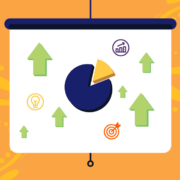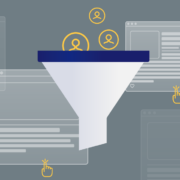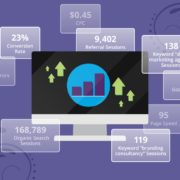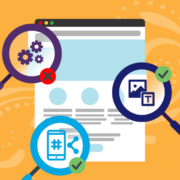How Lead Generation Gets Your Brand Seen and Loved

When it comes to lead generation, many businesses make some serious mistakes. It takes time, perseverance and skill to generate quality leads that convert.
Your business relies on customers. Without them, you have no need to create, sell, provide a service or even advertise. Since it’s clear that you need them, the question is, how do you get them? Sometimes customers will just show up. They’ll visit your business or website and buy your product. That’s more the exception than the rule, though. More often than not, you’re working hard to attract people to you. Those people—your potential customers—are called leads. And the work you’re doing to attract them is called lead generation.
A lead versus lead generation
A lead is someone who shows interest in buying your product. Whether it’s through marketing, social media or word of mouth, these leads are attracted to your business. You’d think that would be enough to make a sale, but usually, it’s not. Just because someone has shown interest in your products doesn’t mean they buy something. It’s akin to a passerby stopping to admire a window display and then moving on a few moments later. They showed interest but didn’t convert to a sale. A quick note here about conversion. When a person makes a purchase after seeing a marketing message, they have converted from a prospective buyer (or lead) to a sale (or a conversion).
So, if leads don’t just walk into your life and shower you with their business, how do you get them? That’s where lead generation comes in. Part of an effective marketing strategy is making sure you’re meeting your customers where they want with the products or services they want. And the best way to discover those two things is by forming a relationship with your target audience.
Lead generation
Let’s go back to the window shopper for a moment. You create a great window display, which piques the interest of a passerby. They’re enticed but not enough to walk in. So, you put up a sign announcing the great deals that are ending soon. Finally, that passerby—now lead—is interested enough to walk into the store. As they walk around, you notice they linger at a few items. This is the perfect time to mention that unique fact about your product. You may even convince them to try it on or take a sample with them. Each of these steps creates a relationship with the person who happened to glance at your window display. You’ve engaged them in ways that complemented their interest, built confidence and persuaded them to move that much closer to a sale. Now, that relationship may end right there. Perhaps they’re not ready to buy right now, or they’re curious about what the store across the street has to offer. But the relationship can likely be rekindled the next time they walk by and see a new display.
And that, in a nutshell, is lead generation. Each step in the process of attracting potential clients increases their interest, gets them to take an action and directs them to a sale. But to do that, you need to have leads. You need to find those potential customers interested in your business and guide them towards a purchase. This is where data and strategy go hand in hand.
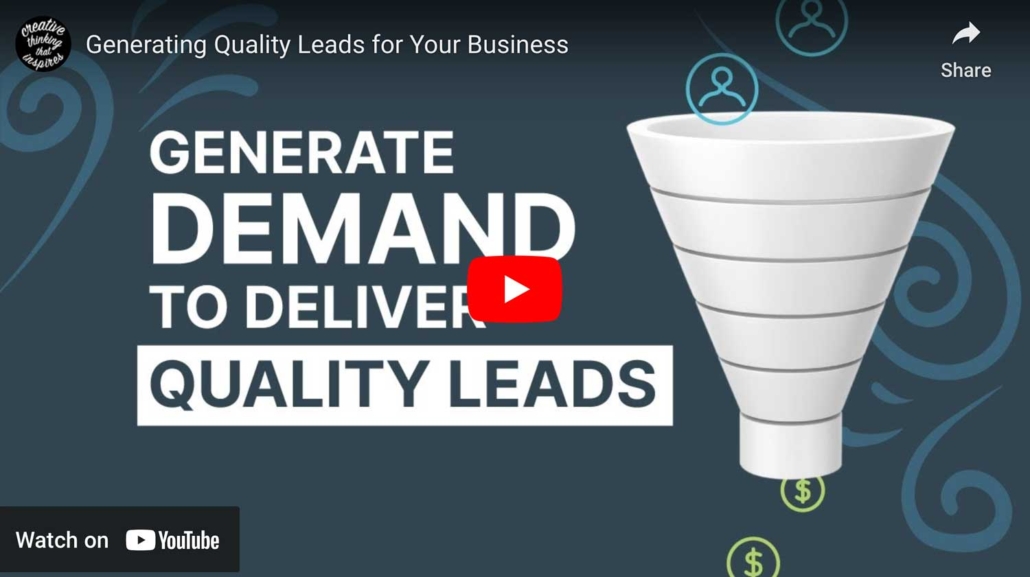
What has lead generation done for you lately?
Don’t know the answer to that? Then you might be doing it wrong. If that’s the case, you probably also don’t have details about who’s visiting your website or socials. If you do, that’s fantastic, but a good marketing strategist also knows precisely how many leads are generated from which source and can even predict waning interest. And this is based on the data from interactions by new and existing prospects. When you know what to look for, it’s possible to find the patterns and take steps to course-correct and bring in more qualified leads.
Whether you’re a B2B, startup or a mature business, lead generation is essential to growth. So let’s look at a few ways this challenging marketing tool can yield astonishing results for businesses in different development stages.
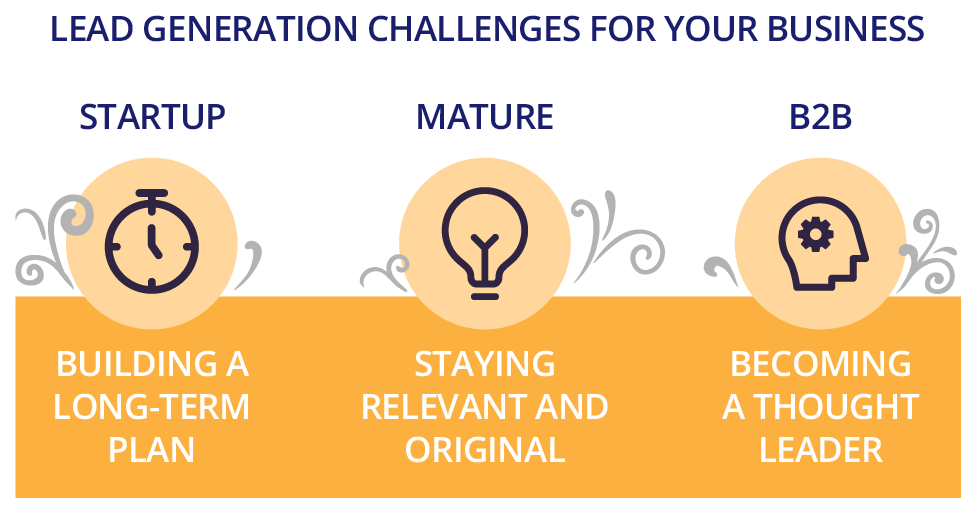
Startups
New, unknown brands need a lot of help getting noticed. But unfortunately, marketing isn’t always top of the agenda when entrepreneurs are launching. Sure, the brand and website are finalized, socials created and some ad spend approved, but sometimes a longer-term marketing strategy is secondary to the immediate concerns of the launch.
Fast-forward a few months to when the initial buzz dies, and the business isn’t growing as predicted. A strategic, tightly-focused marketing plan with ongoing lead generation would have maintained the momentum and continued gradual, sustainable growth. Because the marketer would have continued to learn what worked for their audience and amended their marketing to match it.
Lead generation efforts help build brand awareness for a startup, getting it recognized in many different mediums, which develops a customer base. And as their audience interacts (or fails to interact), marketers can refine the content and execution to really focus on their target market and bring in those customer reviews that keep the buzz going. That interest builds the audience and creates more opportunities for lead generation.
Mature businesses
Established businesses can find themselves stagnating in terms of client base or growth. Often the mere fact that they are consistently selling means that marketing dollars get diverted elsewhere at the annual budget review. This may not be a problem, but it could mean a business finds itself out of touch. When leads cool, stop engaging with a brand on social, delete unopened emails or, worse, stop converting, the business stagnates. If the brand stays in one place too long, it becomes irrelevant.
To avoid this serious misstep, mature businesses can use lead generation to attract new customers and eliminate cold calling. A solid lead generation program supports or replaces a sales team. With intelligent strategy, online lead generation can improve the quality of leads that a sales team receives, reduce the time they need to spend closing the sale, increase upsells or completely bypass the need for a salesperson. For a brand looking to expand its market or stay relevant, these are critical advantages.
In addition, leads don’t always have to convert to a financial transaction. Instead, the end goal can be to download a worksheet or white paper. Providing content assets like those can build thought leadership and increase trust in a brand, which can be worth more than general interest garnered from generic marketing techniques.
B2B
Selling products or services to another business requires a targeted strategy for the industry, business, and product or service. As a result, lead generation for B2B focuses heavily on thought leadership and brand trust. In fact, according to HubSpot, 96 percent of B2B customers look to industry thought leaders as part of their research when making decisions about their next purchase.
As a brand becomes synonymous with quality and knowledge, its value to potential customers increases. And that creates the perfect moment to connect and generate leads. And those leads create opportunities other than sales for the business. For example, another brand in the same industry might reach out for a collaboration or event partnership, which opens the door to a whole new audience for a B2B. Focusing on lead generation helps build brand awareness and visibility.
We could give many more reasons why lead generation is important, but we think you get the idea. So now that you understand how essential it is, how do you create a successful strategy that results in valuable, high-quality leads?
Get a professional
I know my business best; why would I hire someone to generate leads?
We’ve all seen the DIY disaster shows where a homeowner takes on a project with only a YouTube video and some poor-quality tools. It never turns out well. In the end, the DIYer spends more time and money correcting their mistakes than if they had just hired an expert in the first place. The same holds true for marketing your business.
You’ve invested time and money into your business. Your product or service is the best it can be, and your marketing needs to reflect that. Your marketing is the key to lead generation. Sure, you can go out and buy a lead list with 1,000, 5,000 or more contacts and their email addresses. It would be faster and easier than growing them organically, but it certainly won’t give recipients a warm fuzzy feeling when they see your brand. In fact, more often than not, people in these purchasable lead lists have unknowingly had their contact information scraped off their online profile or completed an online form on another company’s site. In Canada, anti-spam laws make this illegal.
And what does your brand do? It sends the equivalent of a cold call to their inbox. This means those recipients don’t know your brand and didn’t ask to hear from you. You know what happens then, right? Unsubscribe. Spam. Block. Too many of those and your domain gets blocklisted, which is a major blow to your brand authority and any trust people may have in it.
I think I’m up for the challenge
Are you though? Just getting a lead isn’t enough. For your marketing strategy to increase sales, it needs to generate significant traffic to produce enough quality leads and then move them through a sales funnel to conversion.
Let’s revert to our analogy. The goal is to get a lot of window shoppers to see the display, a large percentage of them to come into the store, then encourage as many as possible to try a sample and, finally, end up with a percentage of those who make a purchase. And then do it all over again with not only the same leads but new ones.
Making sure that your prospects actually convert involves capturing, understanding and using the data from your lead generation strategy. Different media channels require different strategies. On top of that, various campaigns require different channels. As leads move through the sales funnel, they may not move at the same pace or even in a straight line from start to finish. All of that needs to be reviewed and strategies adjusted based on the reporting.
Creating and maintaining a program that consistently produces long-term results takes time and resources. Not just financial resources, but the expertise and experience to use them effectively. Business owners are unlikely to have the time to monitor and adjust a marketing strategy. But marketing is not a set-it-and-forget-it machine. It requires ongoing analysis and adjustment.
What will a professional do that I can’t do?
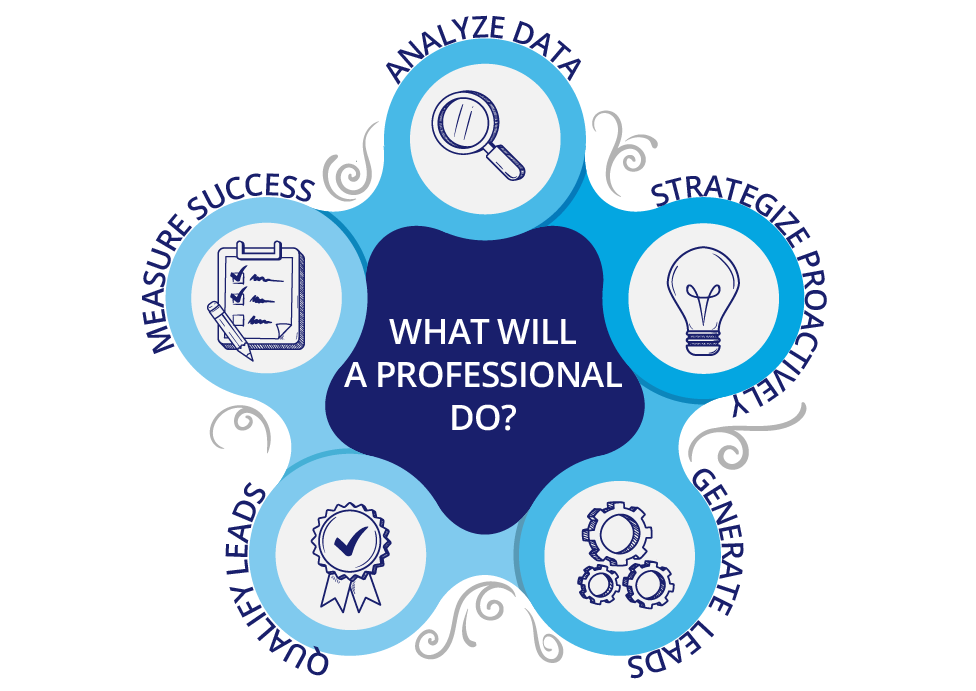
Besides bringing experience, know-how and tools that work for a business, a professional will understand:
- That building a strategy takes time and must be monitored and adapted. Marketers use analytics, metrics, tracking KPIs and other tools to keep building on the existing plan.
- How to use SEO to a brand’s advantage. Did you know most people only look at the first page of search results from search engines like Google?
- How to assess which campaigns and channels are generating high-quality leads and which should be reassessed or dropped.
- That brand consistency doesn’t mean using the latest meme or trend just because it’s trendy and will get you likes. A business that stays within its brand will be more effective at enticing and keeping a loyal audience.
- The best way to develop a custom approach to a lead generation strategy and make it part of a larger marketing strategy.
- How to qualify a lead, or help a lead to self-qualify, well before they reach your sales team.
- How to move a lead through a sales funnel to finally convert.
Generating leads isn’t as easy as simply posting to social media or sending out an email blast. Instead, there is a strategic, multi-step, multi-channel approach to getting people interested and turning them into a customer.
Marketers know where to target leads
Three key channels for B2B leads are SEO-driven organic traffic, email marketing and social media. SEO can be tricky to navigate, but you won’t have to worry about poor search ranking and missed opportunities with a marketing partner. When you want to promote a product or service, a targeted, engaging email marketing campaign written with clarity in your brand voice can be the difference between an unsubscribe and a new customer. In addition, professional marketers use your social channels to access built-in lead generation tools as part of a broader social media marketing strategy. A professional marketer will know how to incorporate these into a comprehensive marketing program that’s right for your brand.
Professionals work with you
Using a professional like Mindspin gives you peace of mind. It’s a partnership that results in solid marketing leadership and a program aligned with your goals to generate consistent, long-term sources of leads.
There are many businesses out there who promise results with very little to back up their claims. Make sure you hire a company that delivers for its clients. A professional with solid experience will know exactly how to get you started on your marketing strategy and put your business goals first. Namely, building your brand and turning window shoppers into clients.
Tanja Groos, Founder and Director, Mindspin® Studio Inc.
Tanja Groos is a Founder and Strategy Director with more than 25 years of experience in branding and digital marketing. She has a strong background in developing and implementing marketing strategies, gained from collaborating with leaders and managers in consultative and service-based industries. Her efforts have tripled sales, surpassed top industry competitors online, and enhanced brand credibility for her clients.
Tanja’s award-winning branding work and marketing insights have been featured in national showcases and publications like “The Hamilton Spectator” and “Identity Solutions.” She received the Entrepreneurial Recognition Award from the Government of Canada. Tanja is passionate about helping people connect with services that enhance their lives and guiding readers in achieving their business growth dreams by explaining how marketing gets them there.
Follow Tanja on LinkedIn


